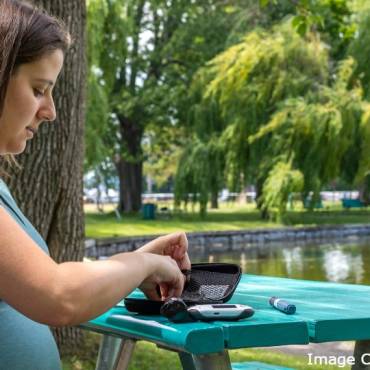Today’s major health issue heard from people is diabetes, and not just elderly people, it is affecting the youth and middle aged people also. Moreover, they just can’t resist their sweet tooth even after knowing about their sugar level. Diabetes care is an essential requirement for the existing and upcoming generation.
The main cause of origination of diabetes is transition linked to changes in dietary patterns and decreased physical activity, as clear from higher prevalence of the disease in the urban gentry. This can adversely affect the nation’s health and economy. Hence, it is necessary to recognize the diabetic patients at an early stage and provide appropriate diabetes medication and lifestyle in preventing worsening of the condition. It is not a single disorder, rather a set of related diseases that abstains the body from regulating the required sugar in blood. In a healthy person, the blood glucose level is regulated by several hormones, majorly insulin. Insulin is produced by the pancreas, which also makes other important enzymes released directly into the gut, which in turn helps in food digestion. Insulin allows glucose to move out of the blood into cells throughout the body where it is used for fuel.

Diabetic people either does not produce enough insulin or cannot use insulin properly, or both leading to an inefficient flow of glucose present in the blood into the cells, making blood glucose level high. This starves all the cells that needs glucose for fuel and also damages certain organs and tissues exposed to the high glucose levels.
Also Read: Born to Fly: Break the Chains of Stress
Symptoms of Diabetes
Diabetes has multifold early signs, but they are not noticeable. Most people are unaware that they have diabetes in its early or even middle phases. Some of the subtle symptoms of diabetes are listed below:
- Increased urge for bathroom breaks.
- Added on thirst than ordinary.
- Loss of weight.
- Craving for food.
- Ongoing fatigue
- Mood swings
- Impaired vision
- Slow healing of cuts and scrapes
- Numbness in feet
- Prone to urinary or yeast infections
Types of Diabetes
There are two types of diabetes as described below:
Type 1 Diabetes: It is an autoimmune disease in which the cells of the pancreas do not produce sufficient insulin. This is then followed by hypoglycemia, low blood sugar. When hypoglycemia develops, cells do not get enough glucose and patients suffer from confusion, loss of consciousness, and coma. In cases where the brain is deprived of glucose for too long can even lead to death. Type 1 diabetes treatment can help to save the mishappenings.
Type 2 Diabetes: When blood cells are no longer able to secrete sufficient insulin to overcome insulin resistance, tarnished glucose tolerance causes type 2 diabetes. The dysfunction of other hormones such as reduced secretion in the incretin glucagon-like peptide- 1, hyperglucagonarmia and raised concentrations of other counter-regulatory hormones also contribute to insulin resistance, reduced insulin secretion and hyperglycaemia in this type of diabetes. Type 2 diabetes treatment helps to overcome the malfunctioning.
Diabetes Treatment
The focus in diabetes treatment is to control blood sugar levels to make it fall in the normal range.
Type 1 diabetes can be treated with:
- Insulin
- Exercise
- Type 1 diabetes diet
Type 2 Diabetes Treatment:
- Weight reduction and exercises
- Oral medication to control the elevated blood sugars of type 2 diabetes (if exercises don’t work)
- Treatment with insulin (if oral medication becomes ineffective)
Strategy for eliminating the craving for sweets:
- Say ‘NO’ to sugary beverages
- Eliminate sugar substitutes
- Eat when actually hungry
- Read ‘sugars’ in the nutritional facts before intake
- Relieve sweet craving by servings of nature (fruits, veggies or yogurt)
Diabetes Care
It is a lifelong responsibility to take precautions and cure. Just Diabetes medication won’t work if the routine life is not amended as per the requirement in context to diet or physical activities. Ways to take an active role in diabetes care and living a health-giving future:
- Make a commitment to manage diabetes as far as healthy eating, healthy weight and blood sugar level are concerned.
- Boycott smoking to reduce the risk of diabetes complications along with heart disease, stroke, eye disease, nerve damage and kidney disease.
- Maintain your blood pressure and cholesterol level as prescribed for diabetes medication.
Also Read: Rejuvenate Your Body through Yoga
- Regular diabetes and eye checkups to take precautions for emerging complexities.
Diabetes medication should be strictly adhered and also the vaccines.



